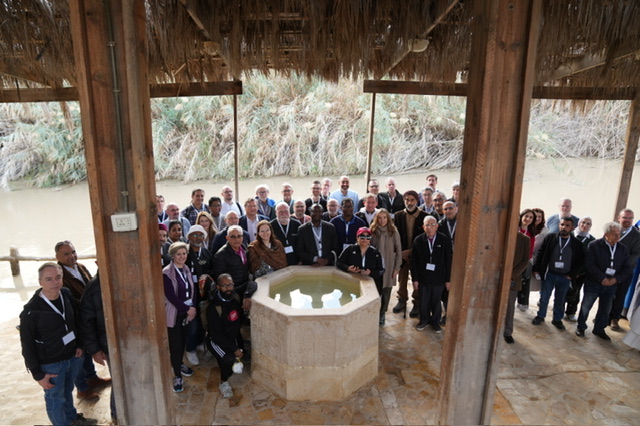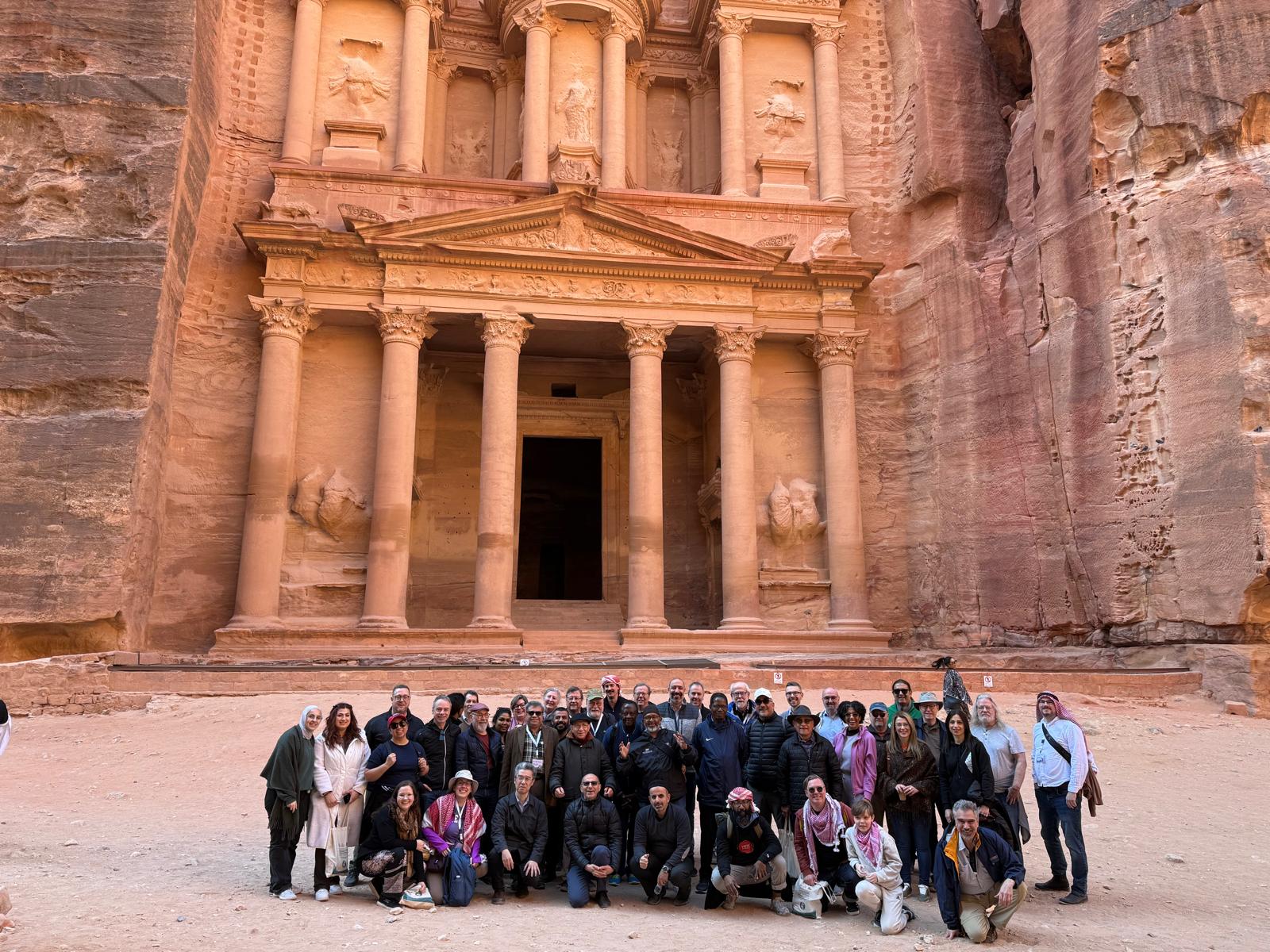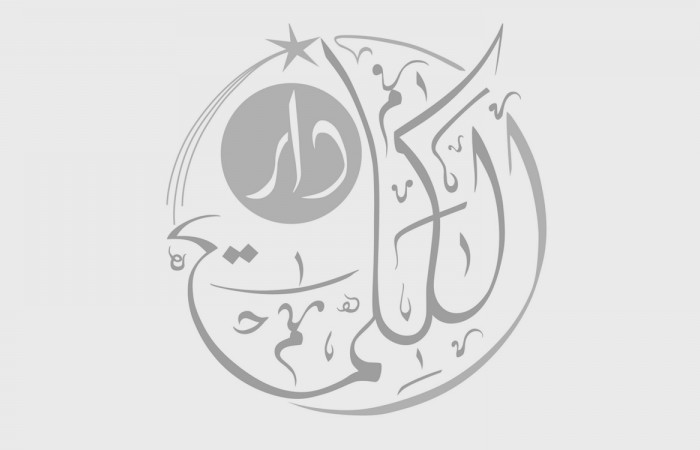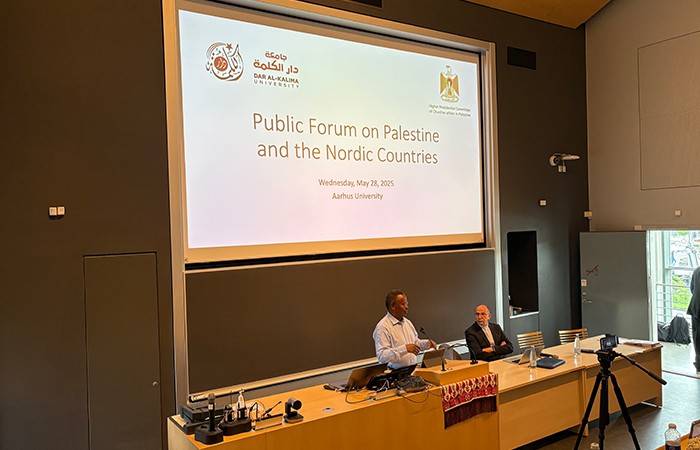Latest News
Report on the Conference: Understanding Christian Zionism and its Effects on Christians in the Middle East
Dead Sea, Jordan and The Baptism Site- Bethany Beyond the Jordan | Date: January 23-27, 2025
Introduction
The conference titled "Understanding Christian Zionism and its Effects on Christians in the Middle East" took place at the Dead Sea in Jordan and the Baptism Site- Bethany Beyond the Jordan brought together experts, religious leaders, academics, and influencers from diverse backgrounds. The event aimed to deepen the understanding of Christian Zionism, its theological foundations, and the tangible effects it has on Christian communities across the Middle East. The conference was organized by Dar Al-Kalima University in Bethlehem, Palestine, in partnership with The Royal Aal al-Bayt Institute for Islamic Thought, under the Patronage of His Royal Highness Prince Ghazi bin Muhammad, Chief Advisor to His Majesty for Religious and Cultural Affairs and the Personal Envoy, and under the auspices of local churches. The conference attracted over 60 participants from 17 countries to discuss and partake in this vital topic.
Conference Sessions and Highlights
Opening Remarks and Overview of Christian Zionism
The conference opened with an insightful keynote address by Rev. Prof. Dr. Mitri Raheb expressing, “This consultation is distinct for several reasons: it brings together for the first time most of the prominent scholars who have significantly contributed to this topic in a comprehensive international setting. It centers on an under-researched theme: the impacts of Christian Zionism on Middle Eastern Christians.” Additionally, Rev. Prof. Dr. Mitri stated, “This consultation adopts a decolonial approach. Edward Said, a renowned Palestinian Christian scholar, explored the concept of Orientalism in Western literature. If he were to analyze Western theological literature- whether evangelical or liberal- he might label this particular form of Orientalism as Christian Zionism, describing the Western view of the East as inferior and requiring conquest-intellectually, religiously, politically, and ultimately militarily. Through this unique consultation, we aim to compile and publish an unprecedented global anthology on Christian Zionism.”
Other prominent speakers include His Beatitude Patriarch Theophilos III, who emphasized the importance of unity among Christians in the region and that Christian Zionism's support for occupation and violence opposes the core teachings of Christianity. He has stated, “Jesus never advocated for violence.”
Journalist Peter Oborne shared his thoughts on the political ramifications of Christian Zionism, noting, “I’ve studied the Gospels and they’re about turning the other cheek, loving our neighbors, and about truth and compassion that is not compatible with the deranged teachings of the Christian Zionists and though they may seem as deranged they are immensely powerful. We need to understand them, we need to know how to combat them. This is a political theology that ignores international law and human rights.”
His Royal Highness Ghazi Bin Muhammad delivered a compelling address on the significance of the conference and its potential global impact in shedding light on the effects of Christian Zionism in the Middle East. He stressed the point of a critical need and concern for the ongoing situation in Gaza, reflecting on the recent ceasefire, stating, "We finally started breathing one week ago." His words underscored the importance of having continuing dialogue and awareness to achieve peace and understanding in the region.
Panel Discussions
On the first day of conference sessions (January 24, 2025), the first panel, “Historically Comprehending Christian Zionism”, set the stage by exploring the historical roots of the movement. This session provided an in-depth examination of how Christian Zionism emerged within evangelical circles, driven by specific theological interpretations. This session highlighted the complex relationship between theology and politics, revealing the long-lasting effects of these early theological constructions on modern-day geopolitics. Building on the historical foundations laid in Panel 1, the second panel turned its focus to the intersection of Christian Zionism, Colonialism, and Genocide. The session critically examined the colonial legacy of Christian Zionism and how the movement has been co-opted by Western powers. The discussion continued in Panel 3, which revisited the theme of Christian Zionism, Colonialism, and Genocide, but with a more contemporary focus. This panel delved into the current geopolitical implications of Christian Zionism and underscored the need for a deeper understanding of the role that Christian Zionism plays in shaping the political landscape and perpetuating cycles of violence. Panel 4 shifted focus to the role of Settler Archaeology in supporting the Zionist agenda, specifically the ongoing threats to Jerusalem. Panelists explored how archaeological excavations in Jerusalem, often funded and supported by Christian Zionist groups, have been used to validate Israeli claims to the city and undermine Palestinian presence. The session emphasized that these efforts not only distort historical narratives but also have tangible consequences for Palestinians, as these archaeological projects often lead to forced evictions and the further erasure of Palestinian heritage. The final panel of the day, “Global Christian Zionism I: U.S. Perspectives,” addressed the influence of Christian Zionism on American foreign policy, specifically its role in shaping U.S. support for Israeli policies.
The second day of the conference (January 25, 2025) continued to explore the global impact of Christian Zionism and its diverse manifestations across different regions of the world. Panel 6, “Global Christian Zionism II: Nordic Region and Western Europe,” explored how Christian Zionism is gaining traction in Europe, particularly in the Nordic countries and Western Europe. Panelists discussed the rise of pro-Israel sentiments within evangelical communities in Sweden, Denmark, Norway, and Finland. The panelists emphasized the need for stronger interfaith collaboration across Europe to counter these influences. Panel 7, “Global Christian Zionism III: Canada, India, and Japan,” expanded the discussion to other global contexts and how Christian Zionism is not confined to the West but is shaping international alliances and perspectives globally. Panel 8, “Emerging Scholarship on Christian Zionism,” shifted focus to academic discussions on the topic. Scholars shared their latest research on the historical, theological, and political dimensions of Christian Zionism, offering fresh insights into how the movement intersects with colonialism, nationalism, and theology. In the next panel, titled “Ecumenical Leaders Point Us to the Future,” Christian leaders from various denominations provided reflections on how the global Christian community can confront the challenges posed by Christian Zionism. Panelists discussed the urgent need for ecumenical collaboration to promote justice, peace, and solidarity. Finally, in the last panel- Panel 10, “Strategies and Tactics for Confronting Christian Zionism,” focused on practical approaches for addressing the theological, political, and social consequences of Christian Zionism. Panelists discussed grassroots activism, policy advocacy, and theological engagement as key tools for confronting the movement’s influence.
Cultural and Spiritual Aspects of the Conference
In addition to the academic discussions, the conference offered an opportunity for participants to engage deeply with the cultural and spiritual heritage of the region. The event was designed to not only foster intellectual exchange, but to provide a sense of connection to the land, central to Christianity. A notable highlight was the visit to the Baptism Site- Bethany Beyond the Jordan, where attendees were given a guided tour of the site with His Royal Highness Ghazi Bin Muhammad allowing participants to reflect on the spiritual importance of the location and its historical context that served as a reminder of the Christian faith's deep roots in the Middle East with the role of His Majesty King Abdullah II in protecting these Christian sites. The conference concluded with a tour of Petra, the ancient city of stone which is known for its breathtaking archaeological significance and remarkable beauty. Petra provided a cultural experience that deeply resonated with the attendees and gave the participants a chance to explore the rich history of the region, landscape, and cultural importance. These tours allowed the conference attendees to gain a greater understanding of the Middle East’s diverse and complex history by strengthening the connection between the academic discussions and the region's broader historical and spiritual context.
Conference Success and Areas for Improvement:
The conference was an overwhelming success, as reflected in the participant feedback, which rated the event an impressive 4.88 out of 5 stars. This event provided invaluable insights into how this theological and political movement impacts both the Christian communities in the Middle East and global geopolitical dynamics. Participants left with a deeper understanding of the intricacies of the issue and the urgent need for unity and dialogue and recognizing the urgent need for continued dialogue and unity. The quality of the speakers was highly praised with participants commending their expertise and thoughtful presentations on the subject of Christian Zionism and its effects. The conference’s organization was also noted for its professionalism by having distinguished speakers from across the globe. While the overall experience was overwhelmingly positive, there was a desire for more opportunities for interactive discussions, such as roundtable sessions or group discussions to further enhance the dialogue on this issue.
Future suggestions and Follow-ups
The participants expressed the importance of this conference and future suggestions to continue its momentum by firstly, staying in touch using varied social media platforms, organizing post-conference follow-up activities, such as webinars and reports, developing a curriculum on Christian Zionism by offering a 3-hour credit course on the topic and Liberation theology in universities, writing a dictionary on Christian Zionism with the proper terms and meanings, discussing the importance of interfaith between Christians and Muslims to not only engage with academics but how it affects politics. Additionally, they suggested creating simple and clear statements that major churches can sign to help stop claims of Christian Zionism by proposing that Palestinians talk to South Africans or other Europeans about the conflict, how biblical archaeology is very sensitive, and to demonstrate the tangible evidence and impact of Christian Zionism. Lastly, some historians, archaeologists, and anthropologists should be brought to tackle the archaeology issue. These recommendations could help translate the discussions into tangible actions for advocacy and peacebuilding.
Conclusion
Overall, the "Understanding Christian Zionism and its Effects on Christians in the Middle East" conference was a valuable and successful event that sparked important conversations around a sensitive and complex issue. It catalyzed greater understanding between Christian communities in the Middle East and their international counterparts, offering a space for reflection and action. The event achieved its primary goal of promoting dialogue and fostering collaboration among diverse stakeholders. The recommendations provided here will be considered as we look forward to organizing more focused, effective, and engaging events in the future. As Rev. Prof. Dr. Mitri expresses, “This consultation's timing is particularly poignant. When we planned this event, no one anticipated that President Trump would assemble the most Christian Zionist cabinet in American history or that the political right with its Orientalist & Christian national views would gain momentum in Europe. The relevance of our discussions here and now cannot be overstated.”
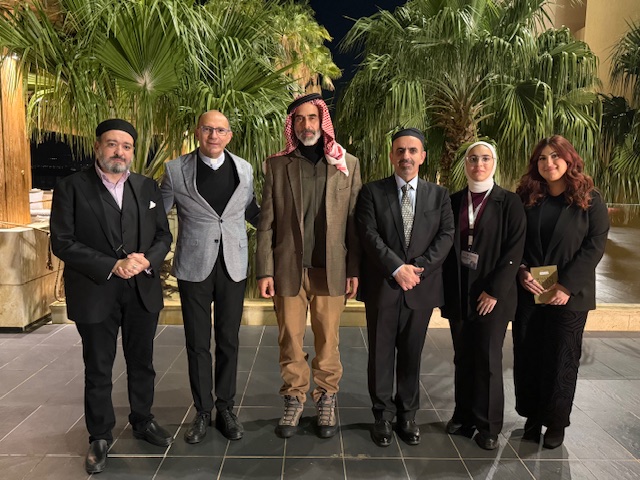
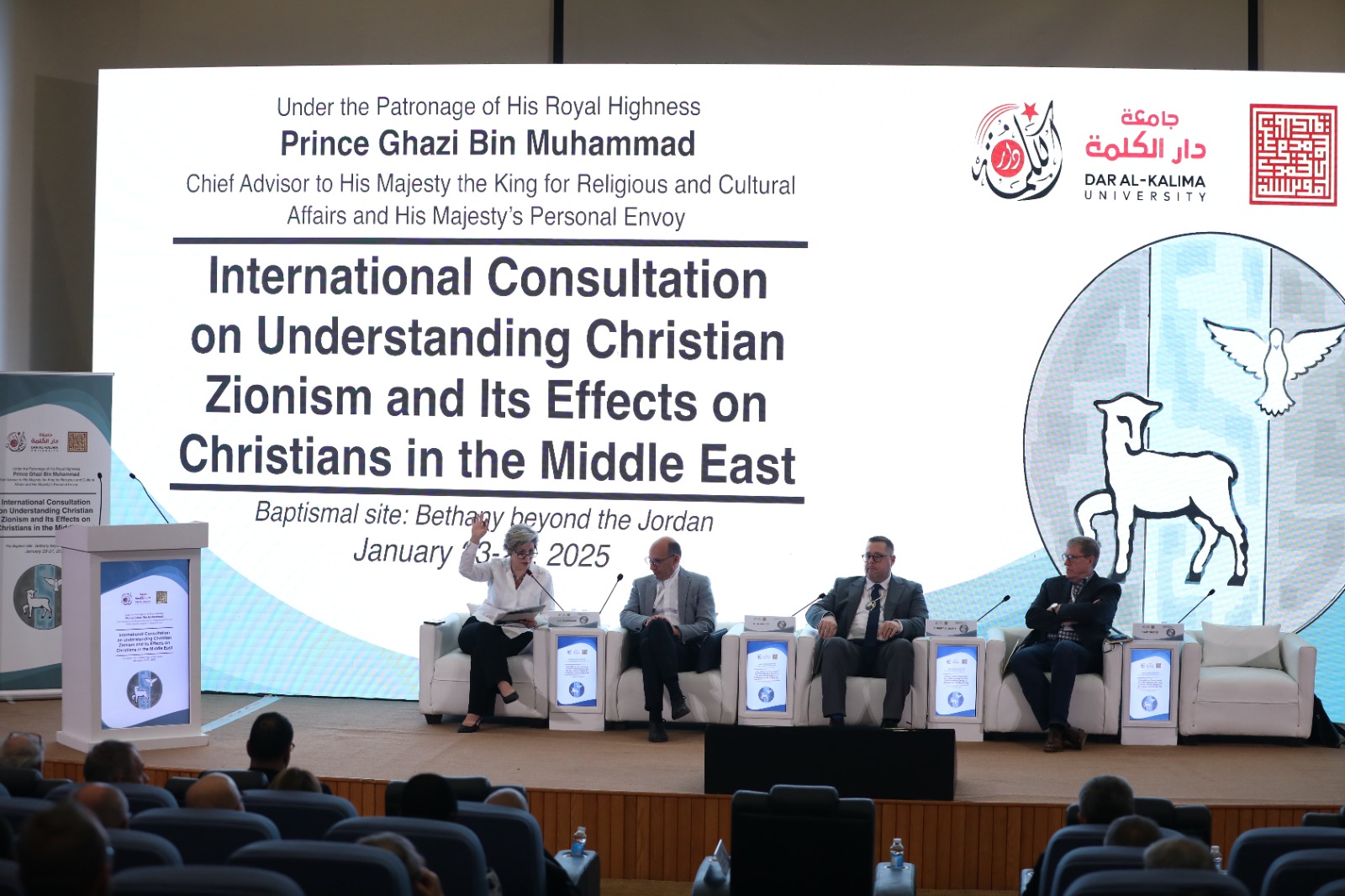
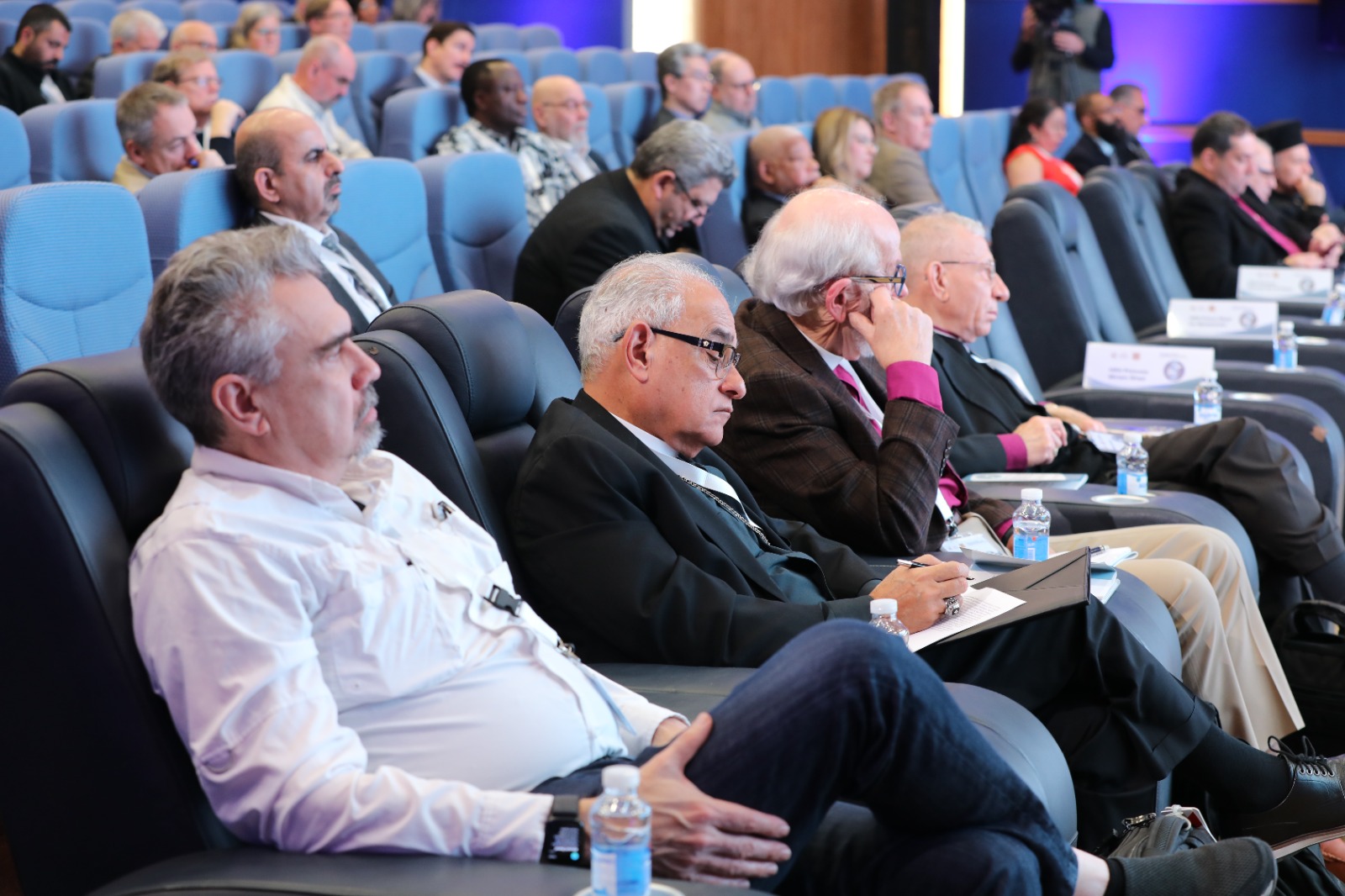

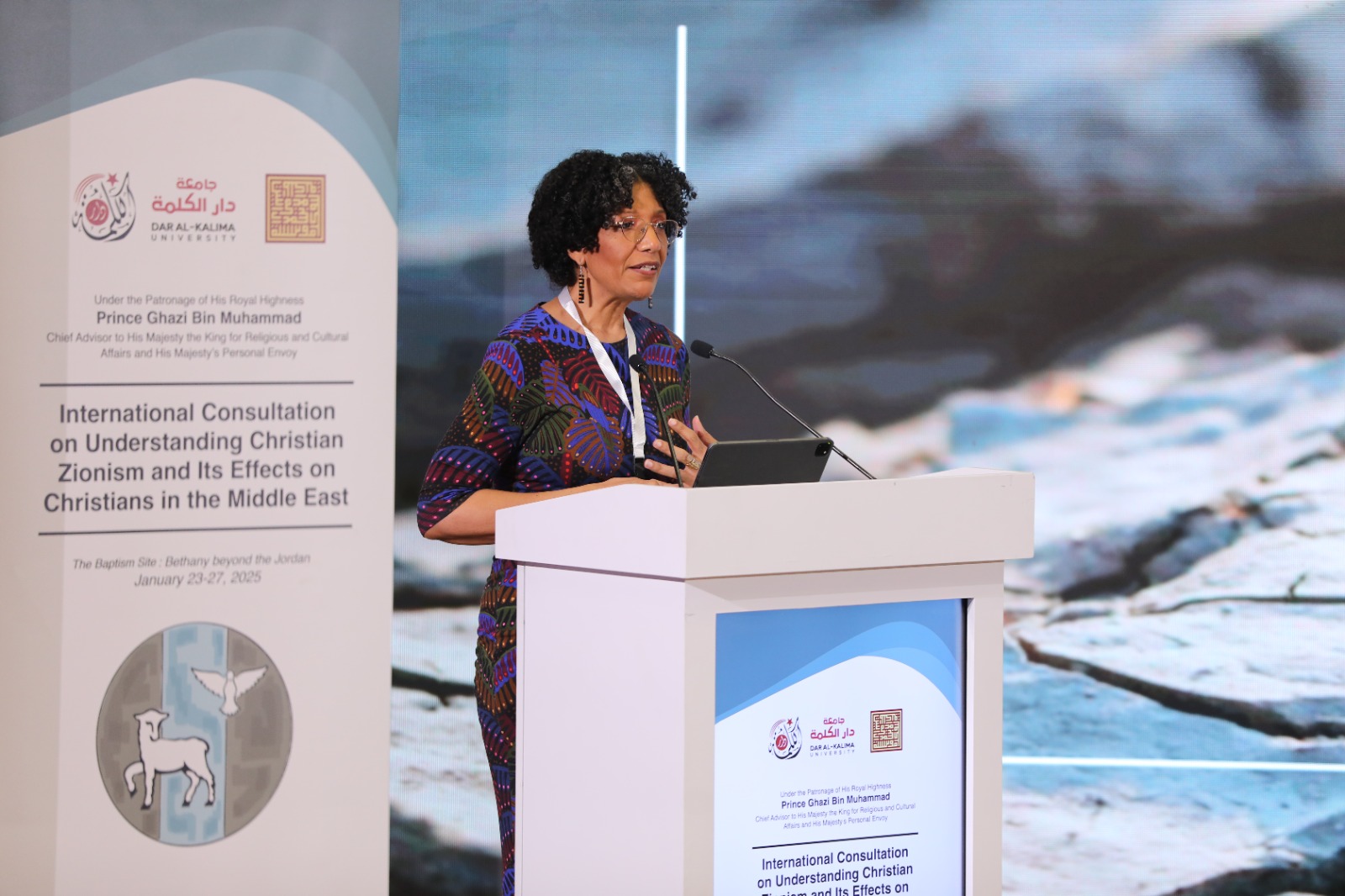
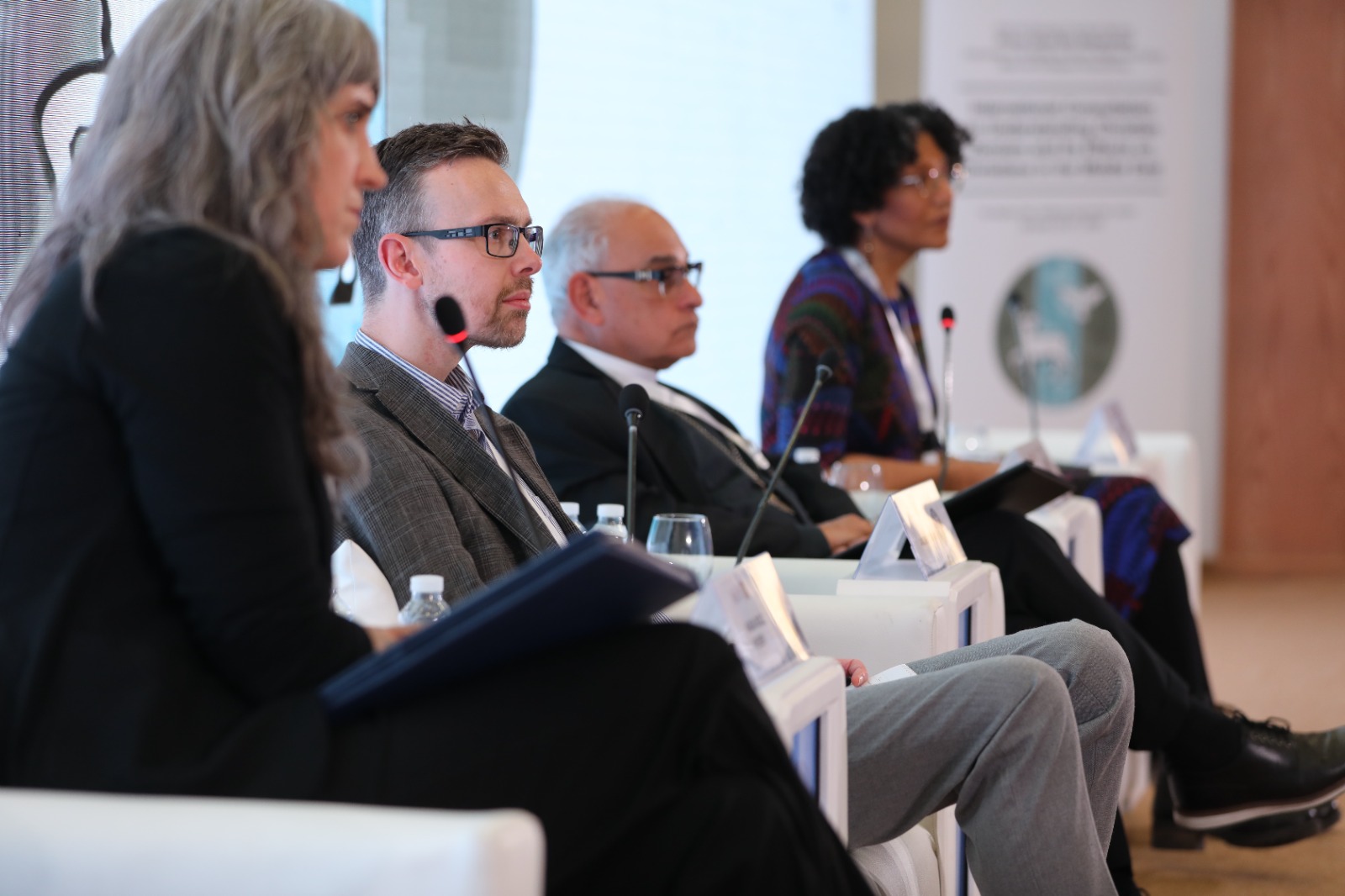
.jpeg)
.jpg)
.jpeg)
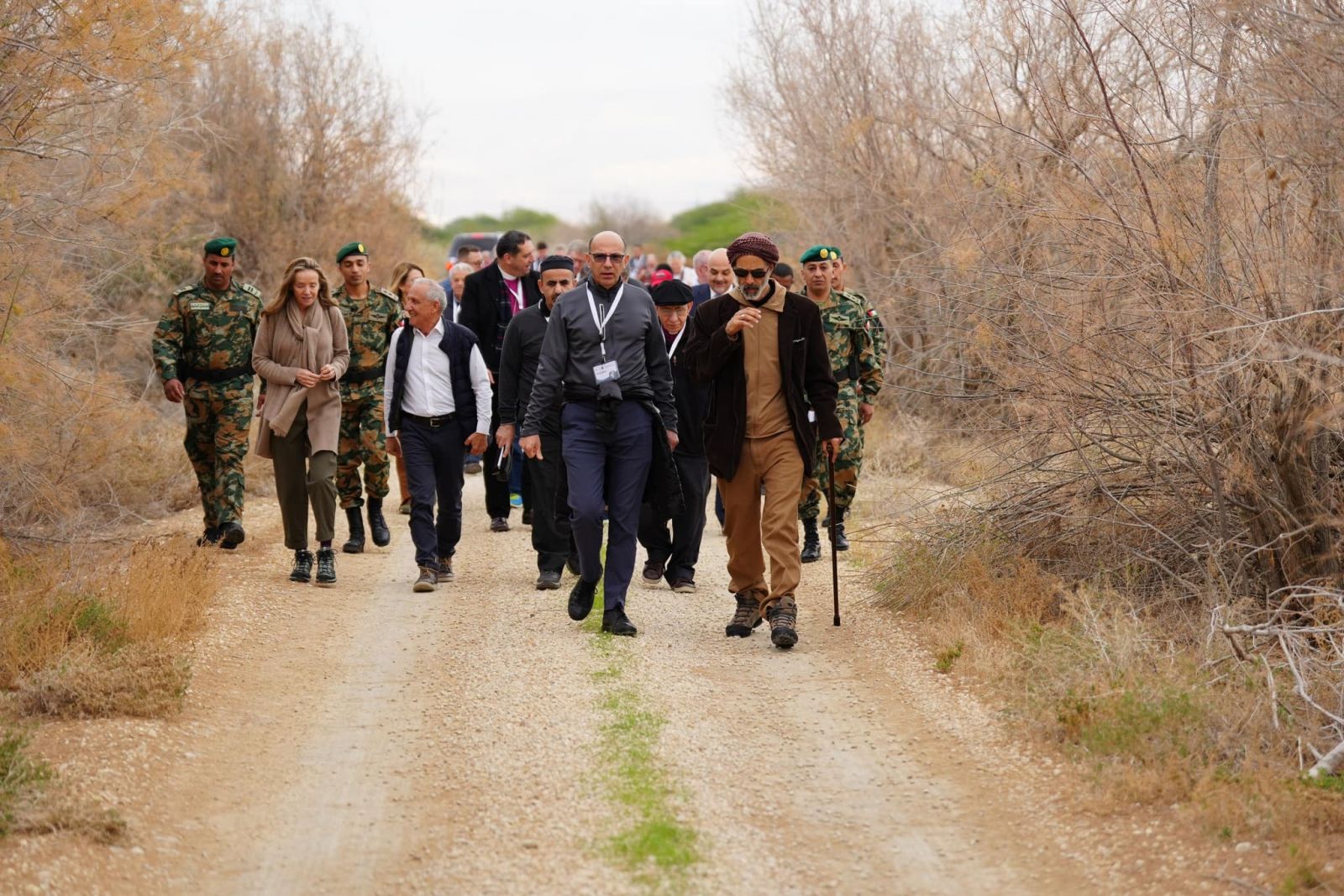




.JPG)
